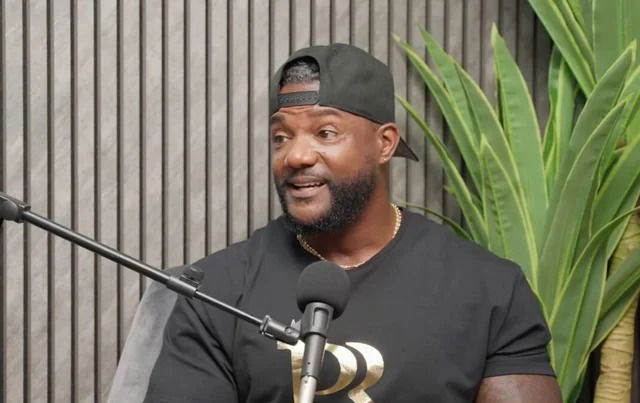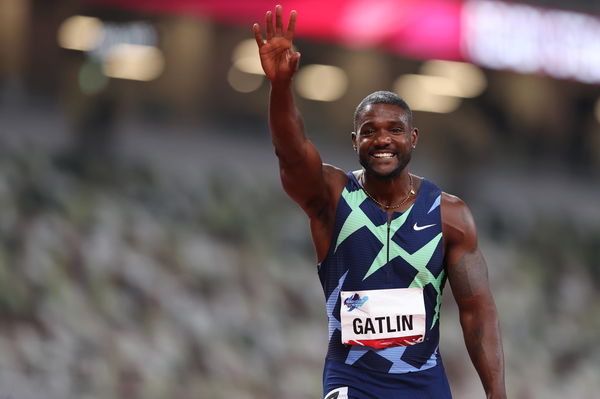
Imago

Imago
A week after the chaos of the World Athletics Relays in Guangzhou, the dust has begun to settle—but not without echoes. What began as a promising opportunity for Nigeria’s relay teams quickly spiraled into an international embarrassment, marked by heartbreak, confusion, and a scramble for diplomatic recovery.
Watch What’s Trending Now!
The Nigerian relay squads—set to compete in four crucial events from May 10 to 12—were eyeing their ticket to the upcoming World Athletics Championships in Japan. But just two days before the starting gun, a stunning announcement dropped from the National Sports Commission in Abuja: Nigeria was pulling out. The reason? Visa complications. Seven U.S.-based Nigerian athletes, including global stars Tobi Amusan and Favour Ofili, were denied entry into China. The backlash was immediate. Fingers were pointed. Questions were asked. And then came the apologies.
On May 13, in an effort to mend the damage, a Chinese diplomatic delegation led by Yang Jianxing, Culture Counsellor of the Chinese Embassy in Nigeria, met with top officials at the National Sports Commission. Facing a room brimming with tension, Yang didn’t mince words. “We are sorry,” he said simply. “I want to describe what has happened as an accident, and we regret it in its entirety.” He assured the commission that China held Nigeria in high esteem and that the incident did not reflect the broader diplomatic relationship. But the words, though appreciated, could not undo the lost opportunity. Nigeria’s athletes—many of whom had trained relentlessly for this moment—were left in the cold. Then came the voice of experience.
ADVERTISEMENT
On May 16, Justin Gatlin, Olympic champion and veteran of the track, addressed the controversy during an episode of his Ready Set Go podcast. The discussion started with the case of Marileidy Paulino, another elite athlete who was denied a Chinese visa for the relays. But co-host Rodney Green soon steered the conversation toward Nigeria’s painful exit and the implications it could have on their qualification for the World Championships. Gatlin leaned forward. His tone shifted—part frustration, part hope.

Imago
Justin Gatlin USA, MAY 9, 2021 – Athletics : READY STEADY TOKYO – Athletics Men s 100m Final at National Stadium in Tokyo, Japan. Noxthirdxpartyxsales PUBLICATIONxNOTxINxJPN 159966914
“I hope that World Athletics comes and puts on a last-chance kind of style meet,” the Olympic champion said. “They usually have it, like, in Zurich—you know, where the Swiss girls run against the Netherlands team, after the Diamond League or something like that.” He was referring to the occasional post-season matchups used to settle qualification debates, usually under the bright lights of a high-profile meet. But this time, Gatlin argued, the stakes were bigger than a race.
ADVERTISEMENT
“I hope that there’s an opportunity where World Athletics constructs a showcase to where certain teams legitimately did not have an opportunity to go to the World Relays and compete. And the ones that maybe dropped a baton, gets the opportunity, you know what I’m saying, to compete.” For Gatlin, this wasn’t just about Nigeria. It was about fairness. About acknowledging that, sometimes, the race is lost before the athletes even step on the track—not by injury, not by defeat, but by bureaucracy. And now, the world watches. So, the question is will World Athletics respond with an olive branch—a wildcard qualifier, a last-chance meet, a shot at redemption? Or will the silence stretch on, leaving athletes like Amusan and Ofili sidelined by forces beyond their control?
ADVERTISEMENT
Justin Gatlin’s predecessor fumed over the authority for a similar issue
Three years ago, long before visas became the headline for the 2025 World Relays fiasco, Marie-Josée Ta Lou-Smith was already living the nightmare. It was 2022, and the World Athletics Championships were set to unfold in Eugene, Oregon—a stage every elite athlete dreams of. But for Ta Lou, the hurdles started before she ever stepped on the track.
Top Stories
Scottie Scheffler Faces Scrutiny After Taking Out Anger on Golf Club at WM Phoenix Open: ‘Washed’

Jordan Spieth Throws Bizarre Temper Tantrum as Opening Round at WM Phoenix Open Becomes a Challenge

Rob Gronkowski Demands Severe Punishment for Andy Reid After Bill Belichick Snub

PGA Tour Split Into Two as Scottie Scheffler Confirms Stance on Patrick Reed’s Return

Drake Maye Reveals Shoulder Injury Update as Patriots QB Announces News On Super Bowl Availability

Rickie Fowler Fans Demand Answers Following ESPN’s Controversial WM Phoenix Open Decision

She had done everything right—trained hard, qualified fair and square, and stayed focused. But then came the blow: visa issues. Not uncommon, but always cruel in timing. In a post on X (formerly Twitter), the Ivorian sprint queen vented with raw honesty: “As an athlete you work hard to be qualified for world champ only to have a visa issue and 1- not been able to travel 2-been able to travel and reach the same day of your race.” Her frustration was palpable, but it was her next line that stung the most: “How did they expect the athlete to perform well ? This is really frustrating.” It wasn’t just her cry into the void—Michael Johnson, a legend in his own right, heard it loud and clear. And he wasn’t having it.
ADVERTISEMENT

The four-time Olympic champion, known for his precision both on and off the track, took to X with fire: “This is ridiculous! It’s been known US entry visa may be one of the most difficult and WA and the organizing committee didn’t get ahead of this? #WCHOregon22” His words weren’t a casual complaint—they were a shot fired at the systemic failure that continues to haunt athletes from visa-challenged nations.
ADVERTISEMENT
Johnson’s outrage echoed the thoughts of many: How can something so predictable still cause so much chaos, year after year? What Ta Lou-Smith endured wasn’t just an isolated inconvenience—it was a warning. And now, with voices like Justin Gatlin and Michael Johnson continuing to speak out, the pressure is rising. For athletes, time is everything. Letting bureaucracy waste it? That’s a race no one should have to run.
ADVERTISEMENT
ADVERTISEMENT
ADVERTISEMENT